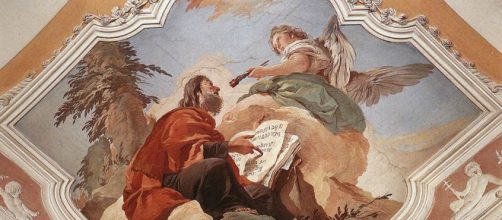Archaeologists working at the southern wall of the Temple Mount in Jerusalem believe they have found a seal stamp, that is believed to bear the signature of the biblical Prophet Isaiah. The clay artifact is said to be 2,700 years old. According to the Times of Israel, Dr. Eilat Mazar whose team found the clay seal mark believed to be tied to the Biblical prophet released a statement on his team's findings. Dr. Mazar said he found the eighth-century clay seal, which was possibly made by the prophet Isaiah only 10 feet from where they previously discovered a highly-publicized seal belonging to King Hezekiah of Judah.
Mazar's team still uncertain about whether it is the prophet, Isaiah
The clay seal is inscribed with the Hebrew name Yesha'yahu (Isaiah) and is followed by the world envy. However the last word is slightly damaged, and experts can't determine whether the Hebrew word is intended to mean prophet, so Dr. Mazar says they must be open to the possibility that it could just be a name Navi. Dr. Mazar did say though that Isaiah is clearly written on the seal.
According to Fox News, the clay seal was found near artifacts that belonged to King Hezekiah, who had a close relationship with the Biblical prophet. Second Kings book in the bible details their close relationship, which highlights that it would make sense that something belonging to Isaiah would be found among King Hezekiah artifacts.
The clay seal was found in a pile of wet material that was gathered from a layer dated to the Iron Age. The item was found close to a structure that the team believes was a royal bakery.
Prophet Isaiah had a storied relationship with Hezekiah
Isaiah is best known in the Christian belief system for his prophecies about the birth and death of the Messiah. Isaiah was one of the main prophets to record the sorrow that is included in the Christian scriptures. The seal, if it is determined to be Isaiah's signature, proves that he worked during the eighth century in Jerusalem's society. Having a seal, meant you were very important. The Bible presented Isaiah as a court prophet, who provided insight to King Hezekiah.
Mazar pointed out that both King Hezekiah and the Prophet Isaiah are mentioned together 14 of the 29 times that the name of Isaiah is mentioned. This discovery joins other major finds from previous excavations including the discovery of what may have been the palace of King David. There are others who are criticizing Mazar's claims. It will take time before anyone can be certain.


